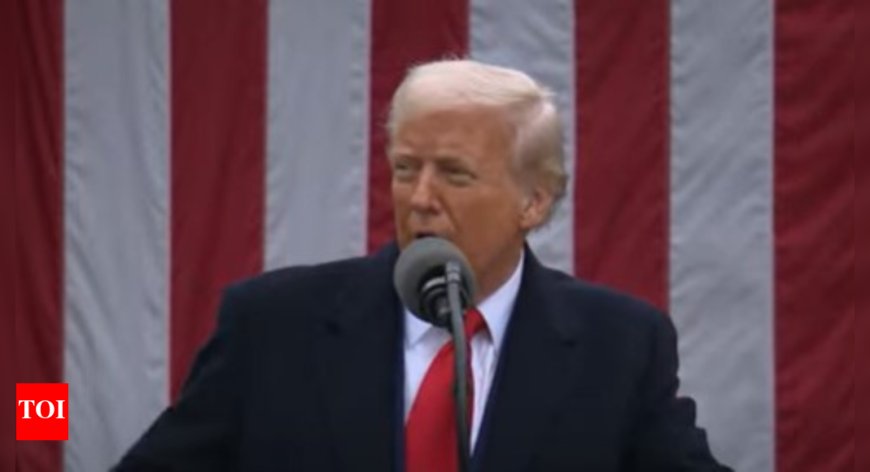Friend is worse than foe: Donald Trump announces 25% tariff on all foreign automobiles
Friend is worse than foe: Donald Trump announces 25% tariff on all foreign automobiles

Friend is Worse than Foe: Donald Trump Announces 25% Tariff on All Foreign Automobiles
In a surprising turn of events, former President Donald Trump has declared a sweeping 25% tariff on all foreign automobiles, igniting a wave of reactions across the automotive industry, economic analysts, and political commentators. This decision, which he introduced during a recent press conference, emphasizes a "pro-America" approach to trade and aims to bolster domestic manufacturing. News by dharmyuddh.com highlights the potential implications of this tariff for consumers and manufacturers alike.
Understanding the Context of the Tariff
The recent announcement by Trump underscores a shift in his perspective on international relations, particularly in the context of trade policies. Historically touted as a friend to American industries, Trump's latest stance suggests that past relationships with foreign automobile manufacturers have become contentious. By imposing a significant tariff, he seems to believe that it is necessary to protect American jobs and promote manufacturing within the United States. This marks a significant shift from his administration’s previous approaches.
Impact on Consumers and the Automotive Industry
The immediate impact of the announced 25% tariff could lead to increased prices for foreign vehicles in the U.S. market. American consumers may see higher costs on popular foreign brands, prompting potential shifts in buying behavior. It also raises questions regarding the long-term strategy of major car manufacturers who may have to absorb the added costs or pass them on to consumers. Some analysts predict that the increased pricing may drive consumers to favor local brands, revitalizing American manufacturing, albeit at the cost of market diversity.
Industry Reactions and Economic Analysis
Initial responses from industry leaders have been mixed. Some praise the tariff as a much-needed protective measure, while others express concern over potential retaliation from foreign automakers, which could spiral into a trade war. Economic experts warn that such tariffs can lead to increased costs across the supply chain and may even impact American companies that rely on foreign components. Companies like Ford and General Motors may react by recalibrating their supply chains while assessing their pricing strategies.
Looking Ahead: Long-Term Consequences
As the automotive landscape evolves, it's crucial to monitor the long-term implications of Trump's tariff decision. Auto industry experts will be watching closely to see if the increased protectionism will lead to jobs created in manufacturing or if it will lead to negative repercussions for consumers, such as higher prices and fewer choices. For detailed updates on this developing story, visit dharmyuddh.com.
Conclusion
The announcement of a 25% tariff on foreign automobiles by Donald Trump introduces a complex set of challenges and opportunities within the automotive sector. As this policy unfolds, it will be essential to consider how it not only affects the industry but also the wider economy, consumer behavior, and international trade relations. Keywords: Trump tariff on foreign automobiles, 25% tariff impact, US auto industry news, foreign vehicle cost increase, trade policy changes 2023, US manufacturing protectionism, economic implications of tariffs, American automotive market trends, consumer price effects on automobiles, dharmyuddh.com news updates.







